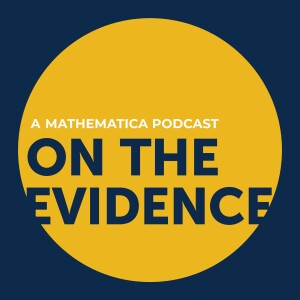
52 | Supporting Economic Mobility Through Coaching and Navigation
 2021-02-24
2021-02-24
Download
Right click and do "save link as"
Nearly a year after COVID-19 took root in the United States, Americans are still dealing with the pandemic’s economic fallout. In January 2021, more than 10 million Americans were unemployed, up from roughly 5.8 million a year earlier. On this episode of On the Evidence, four guests discuss an increasingly popular approach for helping people find jobs and achieve other, related goals that provide economic security, such as getting a GED, buying a car, and improving a credit score. The approach combines two related services called coaching and navigation.
The Bill & Melinda Gates Foundation partnered with Mathematica to better understand what coaching and navigation look like in practice, how the approaches are helping people through remote services during the pandemic, how they can be used to address racial and social inequities, and what evidence currently exists about their efficacy. In addition to hosting a virtual convening and producing a series of issue briefs on the topic, Mathematica invited the following experts involved with coaching and navigation to share their experiences on this episode of On the Evidence:
- Ty Wright, a community engagement coordinator at AppleTree Early Learning Public Charter School, who has benefited from coaching and navigation
- Lucy Smart, the program coordinator of parent engagement for LIFT-DC, who also provides coaching services
- Brian Marroquin, a senior program director for LIFT, a national nonprofit that provides coaching and navigation services in four cities
- Sheena McConnell, a senior fellow at Mathematica who studies employment programs that help vulnerable families
Read about current knowledge on the effectiveness of coaching and navigation in facilitating economic mobility: https://bit.ly/37IZgc9
view more
More Episodes
012345678910111213141516171819
Create your
podcast in
minutes
- Full-featured podcast site
- Unlimited storage and bandwidth
- Comprehensive podcast stats
- Distribute to Apple Podcasts, Spotify, and more
- Make money with your podcast
It is Free
- Privacy Policy
- Cookie Policy
- Terms of Use
- Consent Preferences
- Copyright © 2015-2024 Podbean.com





